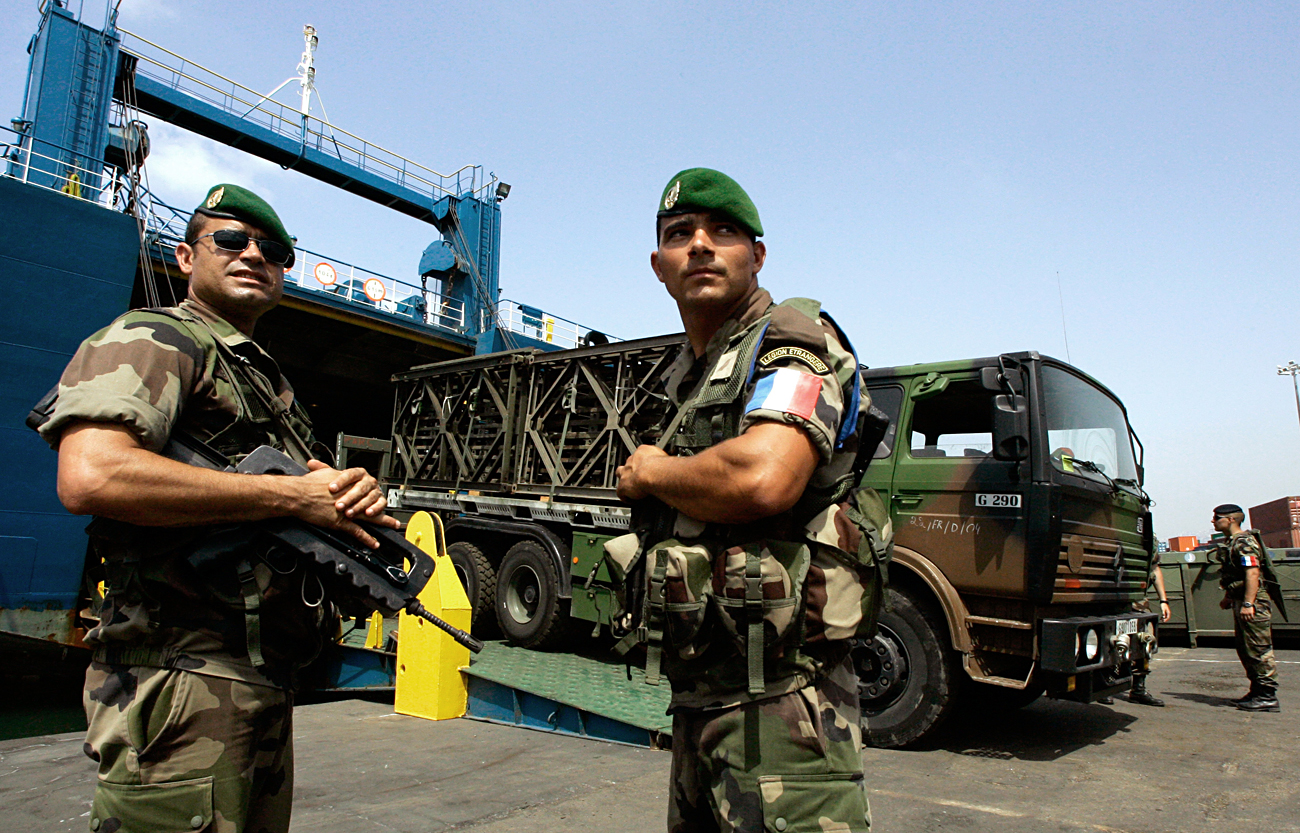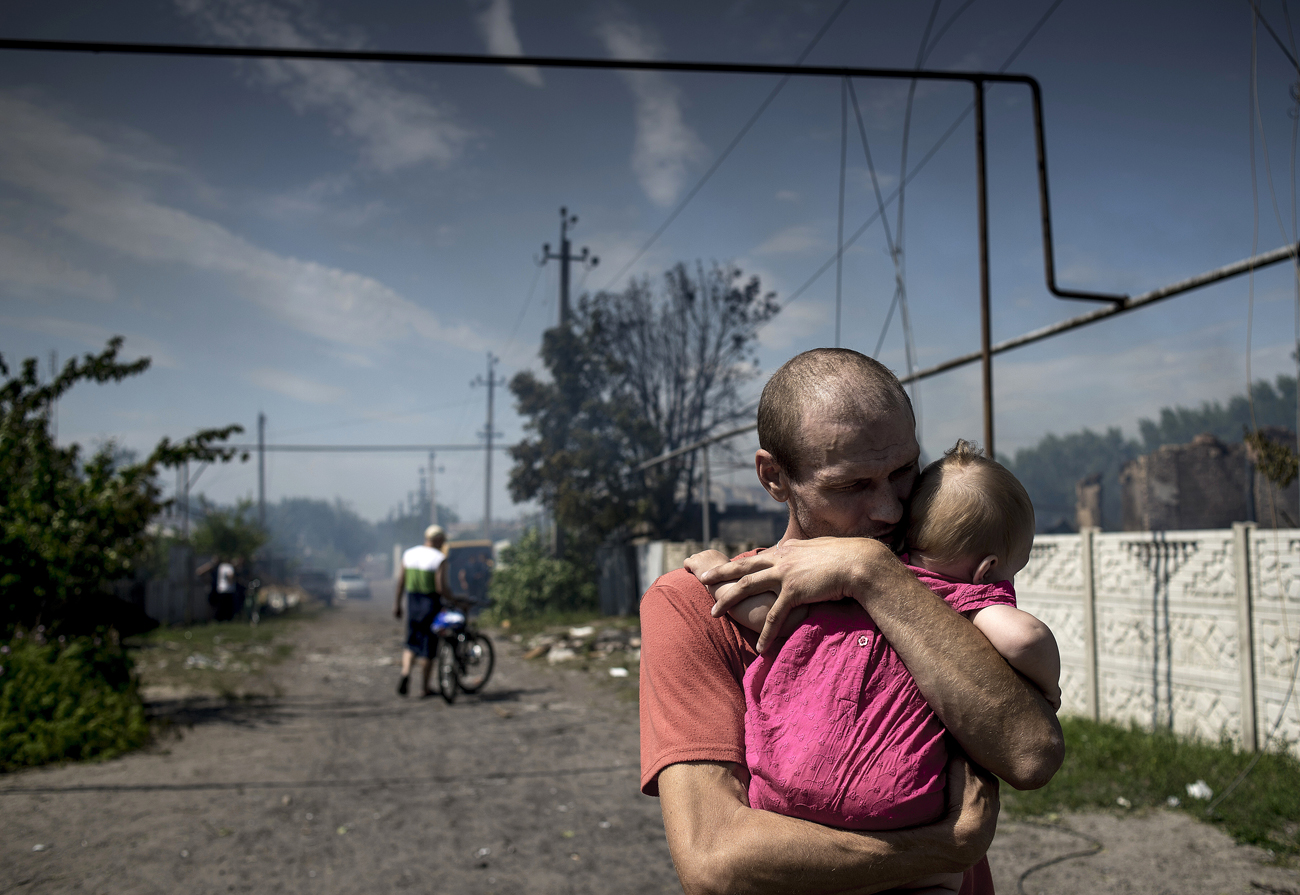For the French Legion’s Russians and Ukrainians, the Donbass means nothing

The French Foreign Legion is among the most battle-worthy units of France's armed forces.
ReutersThe French Foreign Legion (Légion étrangère) is among the most battle-worthy units of France's armed forces. According to open sources, about a third of its personnel are of East European origin. An informed source has told Gazeta.ru that most of these come from Russia, Ukraine, Belarus, and Moldova.
Gazeta.ru interviewed two legionnaires, one Russian and one Ukrainian, to find out whether the conflict in the southeast of Ukraine had affected their relationships with their brothers-in-arms. Their names, and some details, have been altered to protect confidentiality.
Nikita Zveroboyev, 21, comes from the town of Balashikha in Russia's Moscow Region. He has been with the Legion as an explosives disposal specialist for 20 months. Serhiy Shpachyk, 33, comes from Berdyansk in Ukraine's Zaporozhye Region. He joined the Legion's infantry regiment as a machine-gunner two years ago.
Are there servicemen from the other country in your detachments?
Zveroboyev: There are three Ukrainians.
Shpachyk: There are some Russians. In fact, to the French and to other nationals we are all Russians, even though we may come from Belarus, Russia, or Moldova. If you speak Russian and were born in what used to be the Soviet Union, then you are Russian. Nobody cares to go any deeper than that.
Have your relationships with your Ukrainian or Russian fellow legionnaires changed in any way since the hostilities began in the Donbass?
Zveroboyev: They haven't changed a bit. Our friendship is still very strong, both inside and outside the base perimeter.
Shpachyk: I would not say they have, especially given that the Russians in my detachment joined the Legion after this whole chaos began. Nobody talks politics around here; nobody takes any particular interest in it, to be honest.
There are, for instance, these two Ukrainian guys. They both were present at the Maidan [the central square in Kiev and the center of anti-government protests in 2013-14]. One was with the Berkut riot police unit, the other was an active protester. In effect, they were fighting each other back then. When they met at our boot camp they had disagreements at first, each sticking to his guns. But then, after having to share the last of their bread with each other, they grew to become best friends.
Did you get to discuss the conflict at all with your fellow servicemen?
Zveroboyev: There certainly have been discussions. The Ukrainians I know are unanimous in saying it was our leaders who started all this, and that the ordinary people on either sides of the conflict have nothing to gain from it.
Shpachyk: Like I said, we almost never discuss it.
If your brother-in-arms from the other country finds himself in a dangerous situation, and you happen to be the only one to rescue him, will you?
Zveroboyev: Of course I will, nationality has nothing to do with this.
Shpachyk: Even if I hate him I’ll rush to his aid, and not just on the battlefield. This is the Legion's founding principle, everything hangs on it.
First published in Russian in Gazeta.ru.
Read more: Russia and Armenia to create joint defense force in Caucasus>>>
Subscribe to get the hand picked best stories every week
All rights reserved by Rossiyskaya Gazeta.
Subscribe
to our newsletter!
Get the week's best stories straight to your inbox
